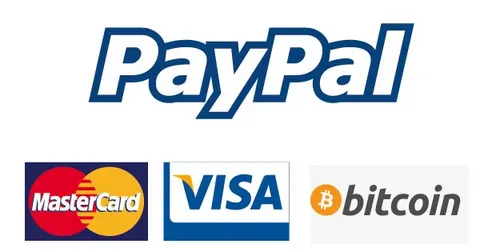Introduction
In the last few years, cryptocurrencies have taken the financial world by storm, emerging as an exciting investment and transaction method. While the crypto market has attracted individual investors globally, the adoption among businesses, especially merchants, has been steadily growing.
In the United States, PayPal, a leading online payment platform, has played a pivotal role in accelerating this adoption among US merchants. By allowing millions of US merchants to buy, sell, and hold cryptocurrencies through its platform, PayPal has opened up new opportunities for businesses to engage with digital assets.
This blog will explore how PayPal empowers US merchants to integrate crypto into their operations. From streamlining the purchasing process to providing easy access to digital currencies like Bitcoin, Ethereum, and Litecoin, PayPal’s platform is transforming how merchants engage with the digital currency market.

PayPal’s Foray into Crypto
PayPal’s entry into the crypto market was a significant turning point for digital currencies, especially for US merchants. In October 2020, PayPal announced that it would allow its users to buy, sell, and hold cryptocurrencies directly within their PayPal accounts. This move not only signaled PayPal’s confidence in the long-term viability of crypto but also laid the groundwork for mainstream acceptance.
For US merchants, this announcement was particularly significant. PayPal already had a strong relationship with millions of merchants in the United States, providing them with a reliable payment processing platform. By integrating crypto, PayPal offered an entirely new financial frontier for businesses that were curious but hesitant about the digital currency market.
The ease of use was central to PayPal’s approach. Merchants didn’t have to create separate accounts or use different wallets—they could now manage all their crypto activities from within their existing PayPal infrastructure. This was a game-changer, especially for smaller businesses that lacked the technical expertise to navigate the complexities of standalone crypto exchanges.
Expanding Payment Flexibility for US Merchants
One of the key advantages PayPal offers to US merchants through its crypto feature is enhanced payment flexibility. Historically, merchants were limited to accepting payments in traditional fiat currencies, such as the US dollar. However, with the integration of cryptocurrencies, merchants now have more options to receive and send payments, particularly in digital currencies.
For businesses that operate internationally, accepting crypto payments via PayPal can simplify cross-border transactions. Cryptocurrencies are decentralized and borderless, meaning merchants don’t need to worry about currency exchange rates or international transaction fees that often accompany traditional payment systems. This has helped US merchants not only save on costs but also appeal to an increasingly global customer base that prefers digital assets.
Moreover, PayPal’s platform allows merchants to instantly convert their crypto holdings into US dollars, reducing the volatility risk often associated with holding cryptocurrencies. This flexibility makes it easier for merchants to experiment with accepting crypto payments without exposing their business to significant financial risk.
Security and Trust in Crypto Transactions
When it comes to digital currencies, one of the primary concerns for both consumers and merchants is security. The crypto market has seen its fair share of hacks, scams, and thefts, which can be a deterrent for businesses looking to adopt crypto. This is where PayPal shines.
By offering a secure platform for buying and selling crypto, PayPal has built a bridge of trust between US merchants and the digital currency market. PayPal’s reputation as a trusted payment processor plays a critical role here. Merchants who might have been hesitant to handle digital assets directly through a crypto exchange can now rely on PayPal’s established security protocols, fraud prevention tools, and user-friendly interface.
In addition, PayPal has implemented rigorous Know Your Customer (KYC) and Anti-Money Laundering (AML) protocols, ensuring that all transactions comply with regulatory standards. This not only safeguards merchants but also provides peace of mind to their customers, who can confidently transact using cryptocurrencies.
Growing Crypto Awareness and Adoption Among Merchants
Since the introduction of crypto services, PayPal has taken steps to educate US merchants about the benefits and risks of digital currencies. One of the main challenges in the crypto space is a lack of understanding about how digital currencies work. Many merchants may still view crypto as a speculative investment rather than a functional payment method.
To address this, PayPal has launched several educational initiatives aimed at increasing awareness among US merchants. By providing resources, guides, and support through its platform, PayPal is actively helping merchants better understand the crypto ecosystem. This, in turn, has led to increased adoption, as more businesses are now willing to explore crypto payments or consider crypto investments as part of their financial strategy.
PayPal’s approach to education goes beyond just the technical aspects of buying and selling crypto. It also includes educating merchants about the tax implications, regulatory considerations, and best practices for managing crypto assets. This comprehensive approach ensures that US merchants are not only empowered to buy crypto but also equipped to use it effectively in their operations.
Conclusion
PayPal’s integration of cryptocurrencies into its platform has been a significant development for US merchants. By providing an accessible and secure way for businesses to buy, sell, and hold crypto, PayPal has empowered millions of US merchants to engage with the digital currency market. From enhancing payment flexibility to building trust through security, PayPal is driving a new era of crypto adoption in the business world.
As crypto continues to evolve, it’s clear that PayPal will remain at the forefront of empowering merchants to navigate this digital frontier. Have you or your business started using PayPal’s crypto services? If so, we’d love to hear about your experiences in the comments below!






